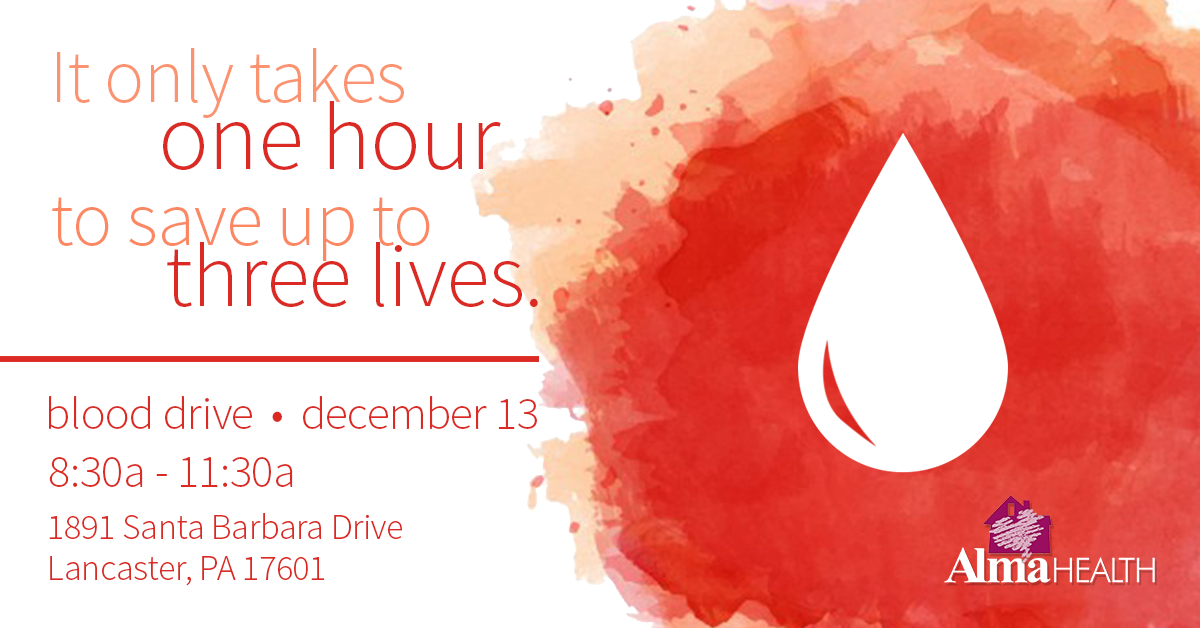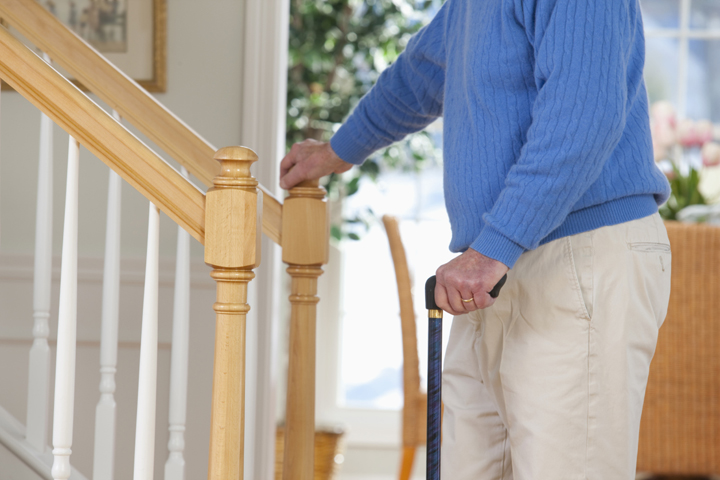Top 10 Benefits of In-Home Health Care
One of the biggest benefits of in home health is that it is geared toward helping you keep in control of your life rather than your health being in control. In-home health care is a viable option for many patients, and provides a personalized experience to staying on track with your health and continuing to live your life as normally as possible. Alma Health is one of the leading agencies in home health care, providing top quality services including service coordination, skilled nursing care and home health, and medical and social case management. Here are the top 10 reasons why you should ask your doctor if in-home health care is an option for you, and consider making Alma Health your provider of choice:
- Providing comfort of your own home during an already uncomfortable time.
In-home health care can give you a sense of normalcy by bringing the patient care to you. Alma Health offers a Long Term Living Program that includes home risk assessments and assistance with housing needs as a part of their service coordination to make it easier for you to adjust your healthcare needs to your home life, not the other way around.
- Assistance with finding new housing if necessary
Service coordinators will help you get connected with community resources and housing programs if necessary, to help you find a home that is safe and accommodating to your medical needs.
- Personalized care
A skilled nurse will be assigned to you that specializes in the area in which you need care. Some examples of areas of specialization that Alma Health’s nurses are skilled in include: wound care, cardiac care, Geri-psychology care, IV care, and more.
- Emergency medical assistance.
With in home health care, you have emergency medical assistance available to you through personalized emergency medical response systems.
- Someone to coordinate your care so you and your family don’t have to.
Your nurse will coordinate your appointments between doctors and help you manage your medicine as well as food and beverage intake, freeing you up to do more of the things you love. Alma Health prides themselves in going beyond just physical care by going the extra mile to make sure you understand exactly what your care means and what all your health care plan entails.
- Medical case management tailored to fit your particular case needs and finances.
Alma Health service coordinators strive to connect you with the best care possible utilizing the resources you have. They provide overall managed care across your medical cases and even work with worker’s compensation companies and insurance companies as needed.
- Light help around the house.
Having a skilled Nurse around to help you manage your daily life also includes helping with light chores to keep your space safe and healthy.
- Transportation assistance (depending on case).
A possible benefit of in home health care can include transportation assistance, saving you time and money in specialized transportation to accomplish daily tasks. AlmaHealth provides this option to patients with a qualifying waiver.
- Assistance with the adjustment period
In-home health provides you with someone who understands what you’re going through, and can help you navigate this new period of adjustment. Alma Health skilled nurses can help you understand your condition and help you find your new normal.
- Retain decision making power.
One of the biggest advantages of in home health care is to help you stay in charge of your life. Having a service coordinator by your side to help you make informed decisions about your health can make all the difference in the kind of care you receive while living with health concerns.
Ask your health care provider if in home health care is a good option for you, and contact Alma Health to get you started.
The flu is now officially an epidemic in the US
The first months of the year can bring about some of the most dangerous weather of the year, particularly for senior adults. The drastic decrease in temperature in addition to increased precipitation leads to slippery sidewalks and dangerously cold temperatures! Keep yourself or your loved one safe by remembering the six D’s of cold weather harm prevention.

1. Debilitating Slips
One of the most prominent cold-weather injuries for seniors occurs when a misplaced step leads to a debilitating slip on the icy sidewalk or driveway. Slipping on the pavement can be increased during activities such as getting the mail, shoveling the driveway, feeding the birds, or walking to your car. Be aware when doing any activity outside of your home after a snow or freeze! Prevent slips by wearing proper footwear (boots or other shoes whose soles with lots of grip), clearing the sidewalk or driveway, using handrails, and avoiding leaving your home in dangerous conditions!
2. Depression
During the dreary winter months, many seniors experience a season depression termed seasonal affective disorder by the American Psychiatric Association. [Read more at https://www.psychiatry.org/patients-families/depression/seasonal-affective-disorder] It’s important to stay involved with social activities during the winter to help combat many of these symptoms, for more information please check out Brighter Living Adult Day Care Center!
3. Dehydration & Vitamin D Deficiency
Most people don’t realize how proper nutrition affects their health in the winter months! In the winter we often neglect hydration, but the cold air can dry out our skin and lead to physiological dehydration. Be sure to drink lots of water!
In the summer months, we get plenty of Vitamin D from the sun, but often in the winter months we unintentionally avoid the sun by hunkering indoors. Eat plenty of foods rich in Vitamin D, such as orange juice, eggs, and fish.
4. Driving
Driving is dangerous for anyone during wintry weather. Be sure to stay off the roads during dangerous conditions! If you are driving in the winter weather, be sure to have the proper equipment. Be sure your tires are fully inflated, only drive a vehicle with 4 wheel drive, stock your vehicle with extra blankets, and consider obtaining a roadside assistance membership.
5. Dressing warm
This sounds like an obvious safety tip, but caregivers often forget that the metabolism of senior adults has slowed and often body fat has decreased, so seniors have a much lower body heat than a younger adult. Be sure to dress in layers and keep a warm blanket handy! Items like hats, gloves, and wool socks are important in keeping areas of low blood circulation warm.
6. Disinfect
The first couple months of the year are plagued by viral infections. The flu, common cold, and respiratory diseases are common in the coldest months of the year. Many seniors are hospitalized with pneumonia during this season. Complete prevention of viral infection is almost impossible, but there are ways to increase prevention. This includes washing your hands! This is the most effective way to remove grime and germs from the oils of your hands. Keep your hands away from your face, even after you have washed your hands. Refrain from sharing personal hygiene items such as towels, handkerchiefs, and razors.
We hope that you can use these preventative and safety measures to stay safe during the winter months!
At Alma Health, we have certified and winter-trained staff whose priority is to keep you or your loved one safe during the dangerous winter and early spring months! See a full list of our staff at http://www.almahealth.com/about/staff/

Save A Life, Give Blood!
Donating blood has become an important part of the medical world. The Red Cross alone sponsors more than 145,000 blood drives per year! When more blood drives are hosted, more facilities can be utilized, which means more people can find convenient locations to donate. If you are a first-time donor, donating blood can be an intimidating process. But if you know what to expect beforehand it can be a much easier and smoother process!
Let us walk you through the blood donation process so that you can be prepared.
The first thing that will happen is the registration process.
A nurse will take your information and type it into a computer system. This system will note every time you donate, keeping track of how much blood you give as well as what your blood type is.
After you register at the computer, you will be given a document to read over and sign. This document will let you know the risks, safety information, and other basic information you might, or might not, want to know.
Once you read and sign the document you may have to wait in line, depending on how busy the facility is at the time. After your wait, you will be taken to a table to get your blood drawn. Many facilities have curtained off sections, but most blood drives are in open rooms, such as gyms, where there is no privacy.
As soon as you are seated on a treatment table or chair, a nurse will use an alcohol wipe to sanitize the skin around the area where the blood will be drawn. Then, the nurse will insert a sterilized needle into your arm and draw the blood. The standard amount that people donate is one pint. You can opt to give two pints if you feel so inclined. The process of actually drawing the blood only takes about 10-12 minutes.
After your blood is drawn, you might feel dizzy, lightheaded, or nauseous.
Typically, blood drives offer a snack table for those who have donated. It is recommended that you sit at the table for fifteen minutes and eat a sugary snack and drink water or lemonade. Stay seated until you no longer are dizzy, lightheaded, or nauseous. It is possible for you to pass out, but this usually doesn’t happen. The nurses and volunteers are both trained to lay you down and prop your feet up if it seems like you are close to passing out. Don’t worry! Most people don’t have any issue with this and leave the facility just fine!
Once you have waited fifteen minutes or until you are feeling good, you are free to leave! Congratulations! You have just save three lives!
We hope that this has given you a better idea of what it will be like when you go to donate blood! Thank you for volunteering!
There will be a blood drive on December 13th from 8:30-11:00am! This blood drive is hosted by our team! Check out the Alma health website to learn more about our service coordination services and the Facebook page at https://www.facebook.com/AlmaHealth/ to learn more about the blood drive!

Why Choose Case Management Through Alma Health Skilled Services?
Here at Alma Health, we provide medical and social case management services throughout Pennsylvania. We work with compensation companies, insurance companies, employer groups, and private consumers to develop a plan to fit each individuals’ needs! From pediatric to geriatric care, we know that there’s no one-plan-fits-all solution. Everyone has different needs and we’re here to make sure that all of those needs are met in a simple and convenient way!
Why choose Alma Health?
We work with our clients directly to provide the best possible care. While coordinating with agencies in the community, we give our clients choices every step of the way. We want to make sure that everyone we work with is comfortable and happy. Keeping individuals living independently and happily in their own home is our goal!
We also provide understanding, because we know how difficult these things can be! Having the right services can help improve clinical outcomes, which is why we’re so committed to finding the right plan for each patient and the right doctors, RN’s, therapists, home health aides, etc.
Some of our case management services include:
- Home risk assessments and fall prevention
- Medication management and education
- Monitoring of patients with health problems like cancer or heart failure
- Care for those with Alzheimer’s and dementia
- Joint care
- And many more
Learn more about who we are, and the services we provide.

4 Strategies when Individuals with Dementia Refuse Medication
Many patients with Alzheimer’s and other forms of dementia tend to have multiple medications they’re required to take each day. This can often be a tricky task for individuals living alone—forgetting a dose of medication or confusing pills can become commonplace and dangerous. For this reason it’s always a good idea to have someone there to help make sure the right pills get taken at the right time.

What Is Sepsis and How Can Alma Health Help?
For the most part, all know how the immune system works, right? Your immune system fights off germs, bacteria, viruses, etc. to help prevent an infection. Although we’re sometimes prescribed medications to help fight off these infections, our immune system is our body’s’ first defence against illness. But sometimes, for reasons we’re yet to understand, the immune system begins to turn on itself—it begins fighting itself. This is what is referred to as sepsis.

Fall Prevention for Seniors Living at Home
For seniors, experiencing a fall can lead to many dangerous health complications. It can be easier for seniors to break their bones as they age and when seniors fall, this tends to be the leading injury caused. In the United States, 95% of hip fractures are due to a fall. It is vital to take preventative measures to reduce a senior’s risk of fall.

Connecting Seniors and Kids
For seniors, keeping an active mind and lifestyle is important for overall better health. A recent trend in senior care, is pairing seniors with young children. There are great benefits to both for this developed relationship!

What To Know About Age-Restricted Communities
Seniors come to a point in their lives when they decide that they want to make a change in their housing arrangements. For many seniors, they simply have a home that is just too big for them. Their children are all grown and moved out. The house is too large to take care of. The stairs are getting more difficult to climb each and every day. Downsizing is the next logical step.

Warning Signs of Elderly Abuse
Unfortunately, elderly abuse happens too often to seniors today. Many times, this abuse can occur from a place seniors should be feeling most comfortable: their home. Seniors can be abused at a nursing home, hospital, or in their own house.
